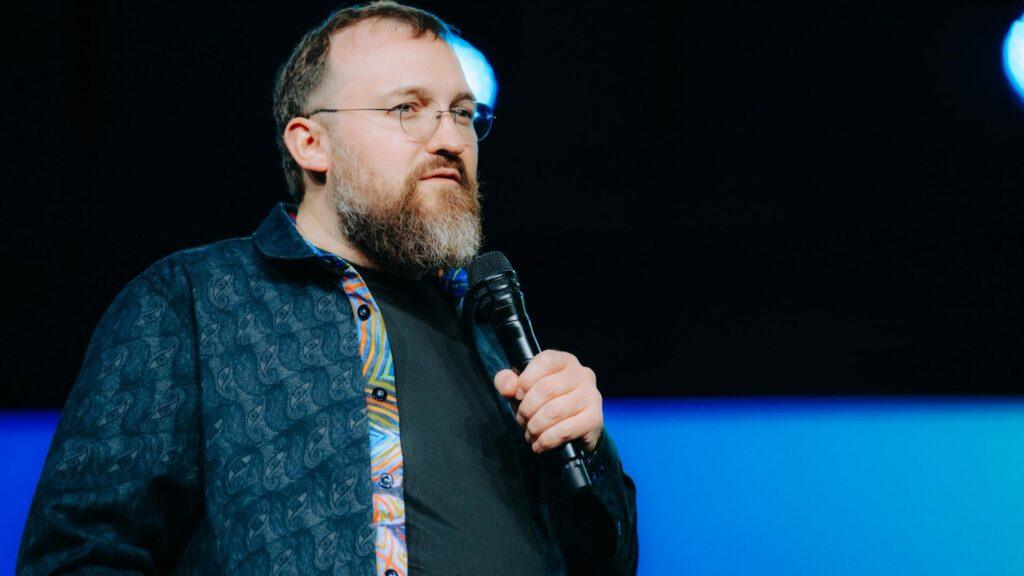Charles Hoskinson, founder of Cardano and Ethereum’s early co -founder, says that the US health system is not broken, it is working exactly as designed. And that, he says, is the problem.
“Medical care is fucked in the United States. It is screwed. Everyone knows that it is true,” said Hoskinson in an interview with Coindesk TV at the rare Evo conference in Las Vegas. “However, everyone tries to continue making the system work because it is too profitable.”
While it may sound like a hard criticism, Hoskinson is putting its money where its mouth is: it is investing an investment of $ 200 million in a medical center in Gillette, Wyoming, which now serves one third of the city’s population.
Your vision for your multimillionaire investment? “If they can’t pay, don’t charge them,” he said.
The ‘horrible’ problem
So what are the main problems with the current health system that made it see millions in a new type of system? According to Hushinson, it’s how doctors are paid.
“All financial incentives are simply horrible and incorrect within medical care,” TV told Coindesk, using an example of how doctors are encouraged to treat their patients anyway, regardless of their needs.
“Let’s say he is 75 years old and has a lot of great morbidity and simply does not feel good … his doctor will be paid exactly the same amount of money to see him … since he will be paid to see a 16 -year -old girl who comes for a urinary infection and only needs about five minutes and some antibiotics.”
That economic structure, he said, discourages coordination, conversation and long -term planning. “They have all the incentives to keep it as sick as possible during as long as possible, because they have developed chronic treatments for all those things,” said Hoskinson.
And what is the source that built his scathing statements about the health system? “Because my dad is a doctor, my brother is a doctor. The grandfather was a doctor, the uncle is a doctor,” Hoskinson said
The patient -centered solution
To solve this, Hoskinson suggests building a patient -centered installation, not billing codes or bureaucracies and the use of avant -garde technologies such as artificial intelligence and block chain.
“Let’s build a clinic where we put the patient in the center. We build care equipment, we use AI and do everything in our power to try to make it a patient focused on the patient that is affordable.”
The AI, for this new system, will be used to support, not replace, doctors. “Every day you can draw in all all medical knowledge, and you can have agents that represent each specialty of medicine … and provide an updated care plan at the beginning of the day to the supplier.”
The system, he said, can catch “subtle signals in the patient’s history” and help with real -time audit. He also described the plans for AI tools that can mark drug drug interactions, transcribe visits to patients and, finally, act as a “AI partner” to help people interpret food labels, medications and supplements.
Project architecture can also involve Blockchain.
Hoskinson referred to selective dissemination and zero knowledge technology: cryptographic tools that can verify the facts (such as age or citizens) without exposing the underlying personal data. “You can satisfy the intention and philosophy of those unleashed cubes to the underlying client,” he said.
The entire model also plans open source, including protocols and software, to allow replication elsewhere. “We are not here to make money with [it]”Hoskinson said.” The goal is to open them, open source, software, you know, get that care system. “
He is also pressing for a broader policy restart. “Health insurance must be in the same way as you buy it in case you really get sick,” said Hoskinson. “It makes no sense to say, well, it is there for when you get a paper cut or there for when you want to get contraceptives or something.”
However, Hoskinson states that this new medical care model faces the rejection of the traditional medical system.
“The hospital is trying to kill us,” he alleges.
“They do everything that is in their power to make our life miserable. Uh, they will not accredit our doctors. Therefore, it has been obtaining credentials from six to 12 months to practice medicine. He brought a world -famous surgeon and a famous transplant surgeon. They will not give them credentials,” said Hushinson.
While Hoskinson’s struggle to renew the medical care system could be a scenario of David versus Goliath, he sees this as part of his and his family’s legacy. “I put $ 200 million of my own money in my clinic and we have been building during the last three years, and legitimately I want to solve this problem,” he said.
“I think it is my legacy and it is the legacy of the family and it is also the most important thing in the United States.”




